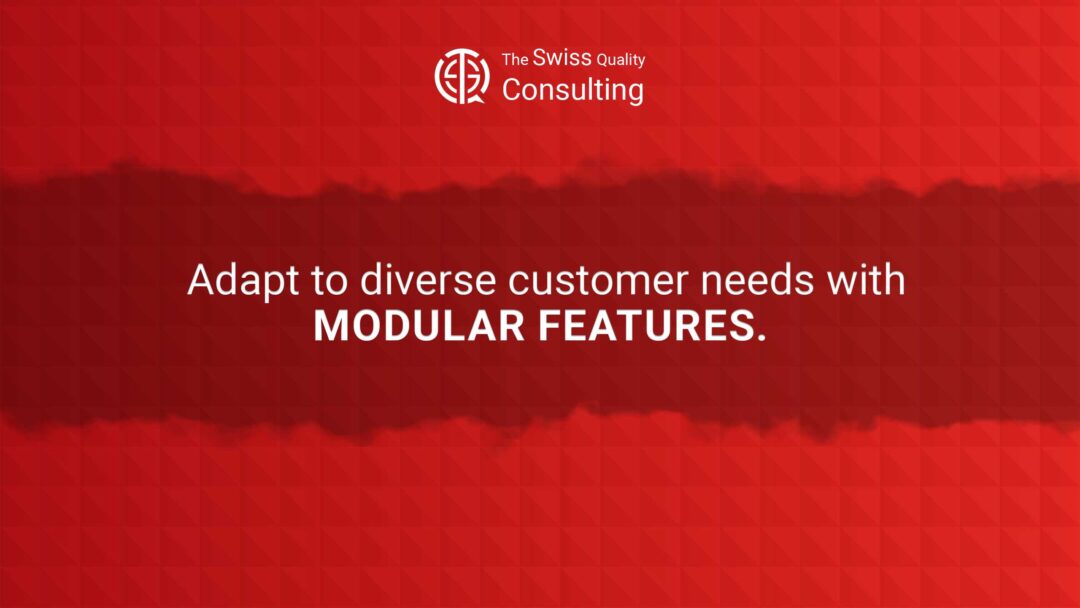Enhancing Business Success Through Flexibility and Customization
In the dynamic realm of business, the ability to adapt to diverse customer needs is a fundamental driver of success. Business executives, mid-level managers, and entrepreneurs recognize that catering to a wide range of customer preferences and requirements is not just a strategy; it’s a necessity. One of the most effective approaches to achieve this is by embracing modular features. In this article, we delve into the significance of modular features in adapting to diverse customer needs and enhancing business success.
The Versatility of Modular Features
Modular features refer to components or functionalities within a product or service that can be added, removed, or customized to meet specific customer requirements. They provide a high degree of flexibility and adaptability, allowing businesses to tailor their offerings to the unique needs of their customers.
Key Attributes of Modular Features
1. **Customization:** Modular features enable customers to select and configure the exact components they need, creating a personalized solution.
2. **Scalability:** Businesses can scale their products or services up or down by adding or removing modules, making it suitable for both small startups and large enterprises.
3. **Cost-Efficiency:** Customers can avoid paying for unnecessary features, leading to cost savings and improved value for money.
4. **Quick Adaptation:** In rapidly changing markets, businesses can swiftly respond to new trends and customer demands by introducing or modifying modules.
5. **Competitive Advantage:** Offering modular solutions sets businesses apart from competitors by providing a unique and tailored experience.
Meeting Diverse Customer Needs
Diverse customer needs are a reflection of the varied preferences, requirements, and challenges faced by individuals and organizations. To succeed in this diverse landscape, businesses must be agile and capable of adapting their offerings to address specific customer pain points.
Examples of Diverse Customer Needs
1. **Software Solutions:** In the software industry, customers may require different features or integrations based on their industry, size, or workflow.
2. **Manufacturing Equipment:** Manufacturers may need specialized attachments or configurations to meet the specific demands of their production process.
3. **Consumer Electronics:** Consumers often seek products with various specifications, such as screen size, camera capabilities, or storage options.
4. **Financial Services:** Financial institutions must offer a range of investment products and services to accommodate the diverse financial goals of their clients.
Enhancing Business Success with Modular Features
The adoption of modular features can significantly contribute to business success by aligning offerings with customer needs and market dynamics. Let’s explore how this can be achieved:
1. Agility in Response to Market Trends
In today’s fast-paced business environment, market trends can change rapidly. Businesses equipped with modular features can quickly adapt their products or services to meet emerging demands, gaining a competitive edge.
2. Increased Customer Satisfaction
By allowing customers to tailor their purchases, businesses enhance customer satisfaction and loyalty. Customers appreciate the flexibility to choose the features that matter most to them, resulting in a positive brand perception.
3. Efficient Resource Allocation
Modular features enable businesses to allocate resources more efficiently. Instead of developing a one-size-fits-all product, resources can be concentrated on enhancing the quality and functionality of specific modules.
4. Cost Savings
From a customer perspective, modular features can lead to cost savings as they only pay for the functionalities they require. On the business side, it can also reduce development and production costs by streamlining the creation of standardized modules.
5. Adaptation to Niche Markets
Niche markets often have unique needs that can be addressed with specialized modules. Modular solutions allow businesses to enter and succeed in these niche markets without completely redesigning their offerings.
Implementing Modular Features Effectively
To harness the benefits of modular features, businesses should follow best practices for their implementation:
1. Customer Research
Understand your target customers’ preferences and pain points. Conduct market research to identify the modules that will add the most value.
2. Scalability
Design modules with scalability in mind. Ensure that new modules can be seamlessly integrated into existing offerings as customer needs evolve.
3. User-Friendly Interfaces
Provide user-friendly interfaces for customers to select and customize modules. The process should be intuitive and accessible.
4. Maintenance and Support
Offer robust maintenance and support for modules to ensure their reliability and performance. This instills confidence in customers and minimizes disruptions.
Real-World Examples of Modular Features
1. **Smartphones:** Customers can choose from a variety of modular smartphone accessories, such as camera lenses, battery packs, and audio enhancements.
2. **Content Management Systems:** Website owners can select and install plugins or modules to add specific functionalities to their websites, such as e-commerce capabilities or social media integration.
3. **Automotive Industry:** Many car manufacturers offer modular vehicle options, allowing customers to select features like navigation systems, entertainment packages, and safety enhancements.
4. **Cloud Computing:** Cloud service providers offer modular cloud solutions, enabling businesses to select the computing, storage, and networking resources they need.
Conclusion: Embracing Modular Features for Success
In the ever-evolving business landscape, the ability to adapt to diverse customer needs is a defining factor of success. Modular features empower businesses to offer flexible, customizable solutions that cater to individual preferences and market dynamics. By embracing the versatility of modular features, businesses can enhance customer satisfaction, streamline resource allocation, and stay agile in the face of change.
#ModularFeatures #CustomerNeeds #BusinessSuccess #Adaptability #Flexibility









